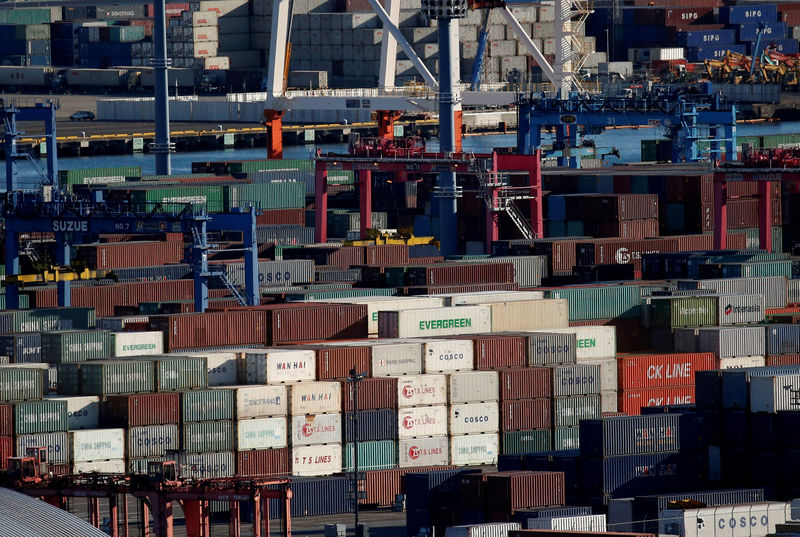By Stanley White
TOKYO (Reuters) - Japan's exports rose in January at a slower pace than the previous month due to a decline in shipments to the U.S. and the Lunar New Year holidays and as concerns about growing trade protectionism cast doubts over the outlook.
Exports in January rose 1.3 percent from the same period a year ago, less than the median estimate for a 4.7 percent annual increase and slower than a 5.4 percent year-on-year increase in December. It's the second month in a row exports have grown, following 14 straight months of contraction.
Meanwhile, imports into the world's third largest economy posted their first increase since December 2014 as oil prices rose following the Organization of the Petroleum Exporting Countries' agreement last year to cut production.
Stronger economic growth in the United States suggests the decline in Japan's U.S.-bound exports could be temporary, but U.S. President Donald Trump's repeated pledges to pull back from free trade have raised concerns that protectionism will spread.
"The trend for exports remains strong, because global demand is gaining strength," said Hiroshi Miyazaki, senior economist at Mitsubishi UFJ Morgan Stanley (NYSE:MS) Securities.
"If Japanese auto makers continue to take market share in the United States, there will be complaints from the U.S. side. This is a risk, because Japan needs exports for growth."
The increases in headline export and import numbers were driven in part by stronger trade prices, masking a more mixed picture on volumes, which were weaker among some product classes.
Exports rose in January due to higher shipments of fuel, car parts and steel, but a decline in auto exports contributed to the slower pace of growth, finance ministry data showed on Monday.
Japan's exports to the U.S. fell 6.6 percent in January from a year ago, due to fewer shipments of auto and electronic parts.
Japan's trade surplus with the United States fell an annual 26.6 percent to 399.3 billion yen ($3.54 billion), following a 5.1 annual decline in the previous month.
If the trade surplus with the United States starts rising again, it could become a flashpoint after Trump singled out Japan, China and Germany for their high exports into the U.S. market.
Exports to China, Japan's largest trading partner, rose 3.1 percent year-on-year in January, slower than a 12.4 percent annual increase in the previous month as factories slowed production before the Lunar New Year holidays.
Imports rose 8.5 percent in the year to January, faster than the median estimate for a 4.7 percent annual increase. That marked the first increase in more than two years due to a surge in imports of crude oil from Saudi Arabia and coal from Australia, the data showed.

The trade balance came to a deficit of 1.09 trillion yen, versus the median estimate for a 636.8 billion yen deficit.